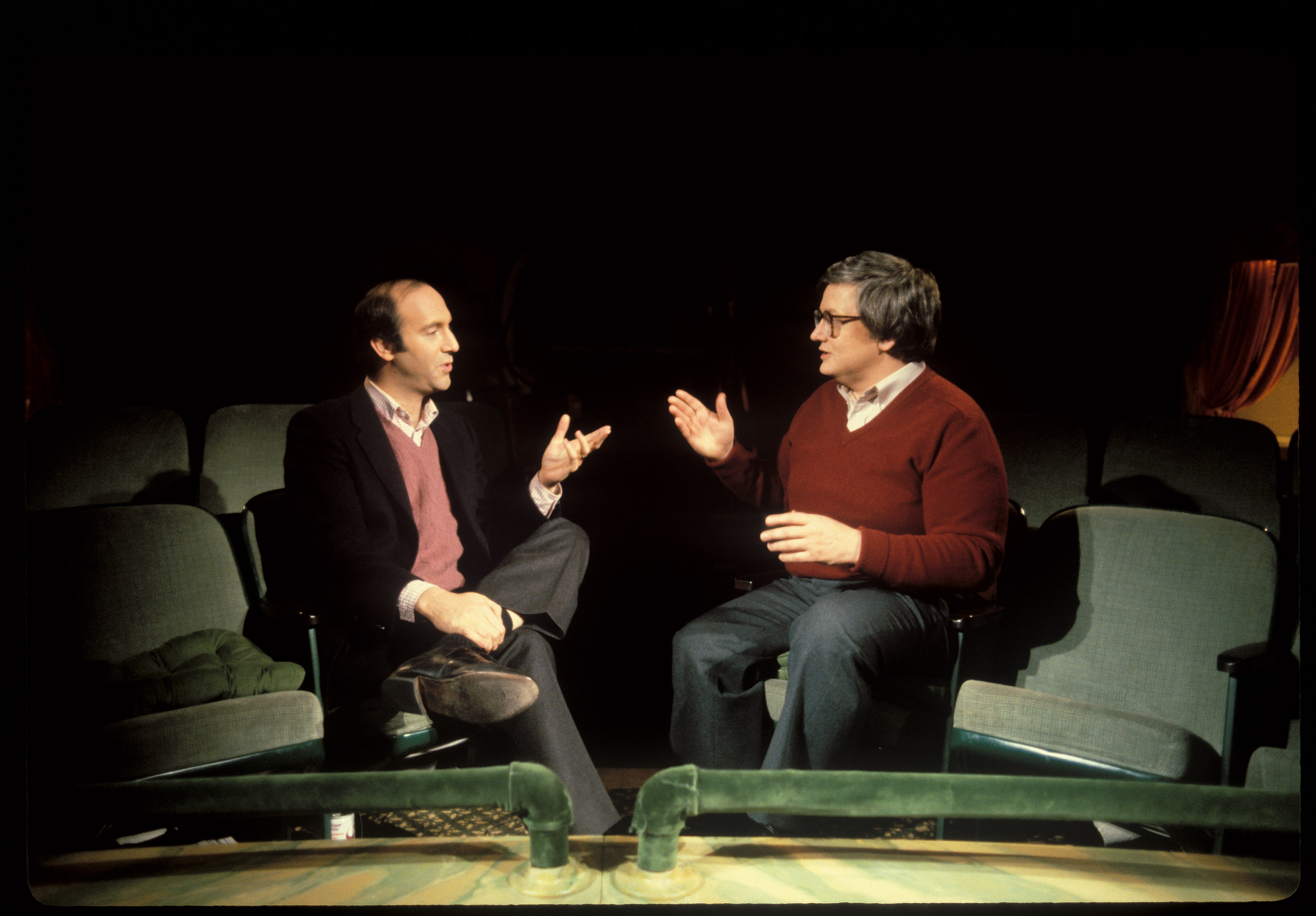For the last 25 years of his life, Roger Ebert was the most famous film critic in America. In his final decade—he died in April 2013—Ebert became famous for something else. He faced death in a public way, with frankness and grit. Cancer altered his appearance and robbed him of the ability to speak and eat, but he was unleashed as a writer. Those last years—and his embrace of blogging and Twitter—steered him into feisty agitprop and mellow memory-writing (he published his memoir Life Itself in 2011).
This new documentary about Ebert focuses perhaps too much on the cancer fight. This is understandable; director Steve James—whose Hoop Dreams Ebert tirelessly championed—had touching access to the critic and his wife Chaz during what turned out to be Ebert’s last weeks. It’s a blunt, stirring portrait of illness. The character we knew from the TV show (it had a lot of different titles) is right there: Before submitting to a brief but uncomfortable hospital procedure and needing some distraction/solace, Ebert insists on having “Reelin’ in the Years” play on his laptop for the duration. To the end, the man had a sense of art as a transforming element.
The movie’s no whitewash. The most colorful sections cover Ebert’s young career as a Chicago newspaper writer, which included hard drinking and blowhardiness. Some friends acknowledge that he might not have been all that nice back then, with a nasty streak that peeked out in some of his reviews and in his partnership with TV rival Gene Siskel. Although Siskel died in 1999, other observers are around to testify to the mutual dislike that eventually turned into a complex kind of closeness. (Whether or not you liked them as critics, there was something exhilarating about seeing people disagree so loudly in the cause of aesthetic passion.) Among the fascinating nuggets that emerge is Siskel’s longtime fear that Ebert would take another offer and leave the show; he was thrilled when Ebert married (at 50), because the demands of family and mortgages would tie his partner down.
Life Itself gives fair time to those who contended that the Siskel and Ebert TV show weakened film criticism. Ebert’s own writing sometimes fills the screen, along with clips of a few of his favorite films, yet this isn’t sufficient to explore Ebert’s movie devotion, which was authentic. Still, this is a fine bio that admirably asks as many questions as it answers. As for the people onscreen who keep asking how Ebert could possibly have written the screenplay to the 1970 Russ Meyer sexfest Beyond the Valley of the Dolls : Folks, you’re really not paying attention.
Opens Fri., July 4 at Harvard Exit. Not rated. 116 minutes.
film@seattleweekly.com







